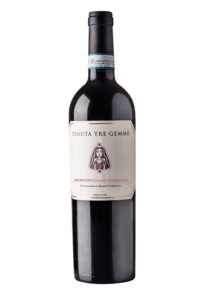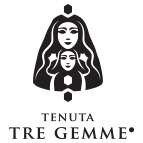
Tenuta Tre Gemme srl : Expression of a territory, Wines with great character (Business News Japan)
Carla Petrucci of Abruzzo dedicates herself to the family winery after a successful career as an entrepreneur and manager in the information technology industry. Carla Perrucci, the founder of Ted Sistemi and for 13 years the CEO of Lexteam inside the TeamSystem Group, one of the major Italian IT firms owned by an international private equity fund, has decided to stay in touch with the high-tech sector as a consultant. Her roots have been calling her to the country of Abruzzo for about two years, to provide a brand and a legacy. Her roots have drawn her back to Abruzzo for the past two years, where she is rebranding and reviving the family vineyard alongside her sister Anna.

At the age of 50, the sums are often drawn: after several years based in Milan and traveling throughout Italy, the return to the roots and the desire to breathe new life into a product that has been in our family for generations is high on my value scale. The fact that I was going on this journey with my sister Anna was the deciding factor. The knowledge that I would be producing a product and an activity that will last beyond this generation has left me with no reservations about my decision. My ancestors have always maintained a close connection to their land. I discovered an identity document for my grandfather in which his occupation was listed as “owner.” He ran the farm with sharecroppers, as it used to be. My father turned the property into a business, complete with methods for the manufacture of wine, albeit of industrial quality. As a result, our contribution was to complete the circle by introducing a private brand.

The seventy hectares of vines from which our wine is made are entirely privately owned and located on the hillsides between our sea and, in Flaiano’s words, “the Abruzzo churches.” The pedoclimatic conditions are unique, which is reflected in the flavor of a product that is described as “austere and pure” and includes the strength of the mountains in its different implications. Nicola Dragani, the president of Assoenologi for Abruzzo and Molise, is the oenologist we’re talking about, and he assisted us in choosing a wine that may embody the history that makes us unique. Our wine is focused on the depth and authenticity of things; it is not flashy, but it accurately expresses the region’s tradition and soul.
From white wines like Pecorino and its sparkling wine varieties, which are highly valued because they lend themselves to being sparkling, to Passerina d’Abruzzo, a wine known and appreciated at Vinitaly and other fairs and events. Cerasuolo rosé wine, especially the 2017 harvest, has a delicate connotation, with a French style that is quite popular.
Tenuta Tre Gemme recently competed in the Business News Japan Awards 2021 and was awarded TWO GOLD in this renowned competition:
Tenuta Tre Gemme – Montepulciano d’Abruzzo DOC – Montepulciano/Abruzzo, Italy – 2019

Tenuta Tre Gemme use stainless steel and concrete tanks for the vinification process. Maceration on the skins generally lasts for around 15 days at a controlled temperature no higher than 29°C. Sulphur dioxine is used in minimal doses. In the first two days the fermenting graoes are racked and returned (the technique of delestage) twice. During this process some of the seeds are removed to reduce bitter and grassy notes. Subsequently the fermenting mass is pumped over every 3-4 days for approximately 10 minutes at a time. As the wine is drawn off it undergoes a soft pressing at a maximum of 12 atm. The resulting free-run must it then stored in stainless steel or concrete tanks to await further management. Malolactic fermentation is controlled but not induced.
Tenuta Tre Gemme – Abruzzo DOC Pecorino – Pecorino/Abruzzo, Italy – 2019

Tenuta Tre Gemme use stainless steel tanks for vinification oricess. Depending on how ripe the graoes are and on the prevailing climatic conditions, the graoes are harvested, destemmed and crushed. The skins and pulp are separated immediately at the crushing stage and the free run juice is transferred to temperature controlled stainless steel tanks for fermentation. Aging also takes place in stainless steel.

